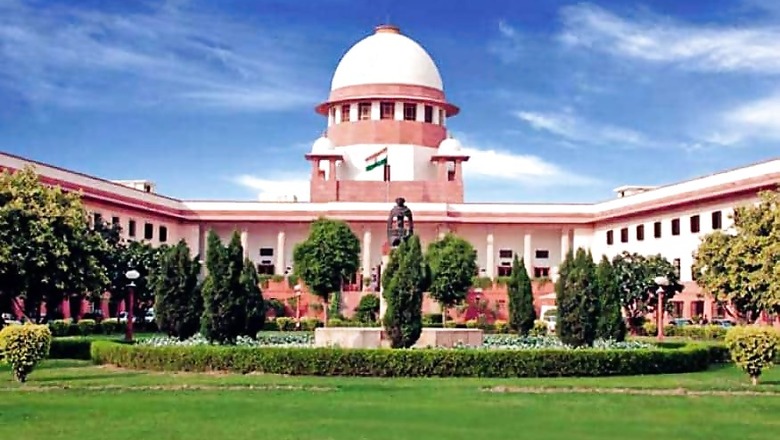
views
New Delhi: The Delhi government on Wednesday concluded its arguments in a case pertaining to the tug-of-war between the Lt Governor and the state government for the administrative control of the national capital. Following the hearing, all appeals in the case were referred to a Constitution bench of the apex court as requested by the Centre.
The Supreme Court referred the legal dispute between the Centre and the AAP government to a Constitution bench stating that "important questions of law and Constitution are involved in the case and the dispute should be adjudicated by constitution bench."
After the Delhi government concluded its arguments on Wednesday, Solicitor General Ranjit Kumar started submitting arguments on behalf of the Centre. The court is now hearing the final leg of arguments in the case.
However, advocate Rahul Mehra, the standing counsel for the AAP government, told News18 that it was not the state but the Centre that had asked for referring it to a Constitution bench and wondered why there was a delay of seven months in such a reference.
"If this case had to be referred to a Constitution bench, it could have been done last February when the hearing started. Why now? In fact, the Attorney General had himself earlier stated that there was no need to refer the case to a Constitution bench. Now, the case has been posted to a five-judge Constitution bench," said Mehra.
Mehra also said that as arguments were completed and queries were raised, the bench was uncomfortable and hence the suggestion to refer it to the Constitution bench was accepted, and this "sudden request by the Centre is a complete U-turn by the central government".
A bench of Justices AK Sikri and R K Agarwal had earlier said that it is correct that the elected government should have some powers, but whether it will be as per the Delhi High Court verdict or as it is being perceived by the Delhi government is yet to be decided.
"We need to first look into this issue. We have to analyse the powers of the L-G as to how much power he has and what his powers are," the bench said.
Senior advocate Gopal Subramaniam, appearing for the AAP government had said that the Government of National Capital Territory of Delhi (GNCTD) except for public order, land and police, possesses exclusive powers in relation to all other entries in State and Concurrent lists and neither the central government nor the President or the L-G has any role or power with regard to all other matters.
Senior advocate Rajeev Dhawan, who also appeared for the AAP government, had also submitted that "in case of any difference of opinion between the L-G and council of minister, L-G cannot overrule”.
"Constitution should be interpreted constructively, not literally. If any decision is taken unpredictable or antithesis to rule of law, then it is violation it must not arbitrary. Unless provisions made by law expressly to L-G to use discretion, it is subject to council of ministers," said Dhawan.
He said that the council of ministers is 'subservient' to the Constitution, to the GNCTD ACT but certainly they are not subservient to the authority which is not contemplated in the Constitution.
In January 2017, Arvind Kejriwal government told SC that it was not seeking full statehood for Delhi but more administrative powers.
The ongoing case is a challenge to the Delhi High Court verdict in August, 2016, which gave all administrative powers to the Lieutenant Governor stating that a "democratically elected government can't be subservient to the L-G."




















Comments
0 comment